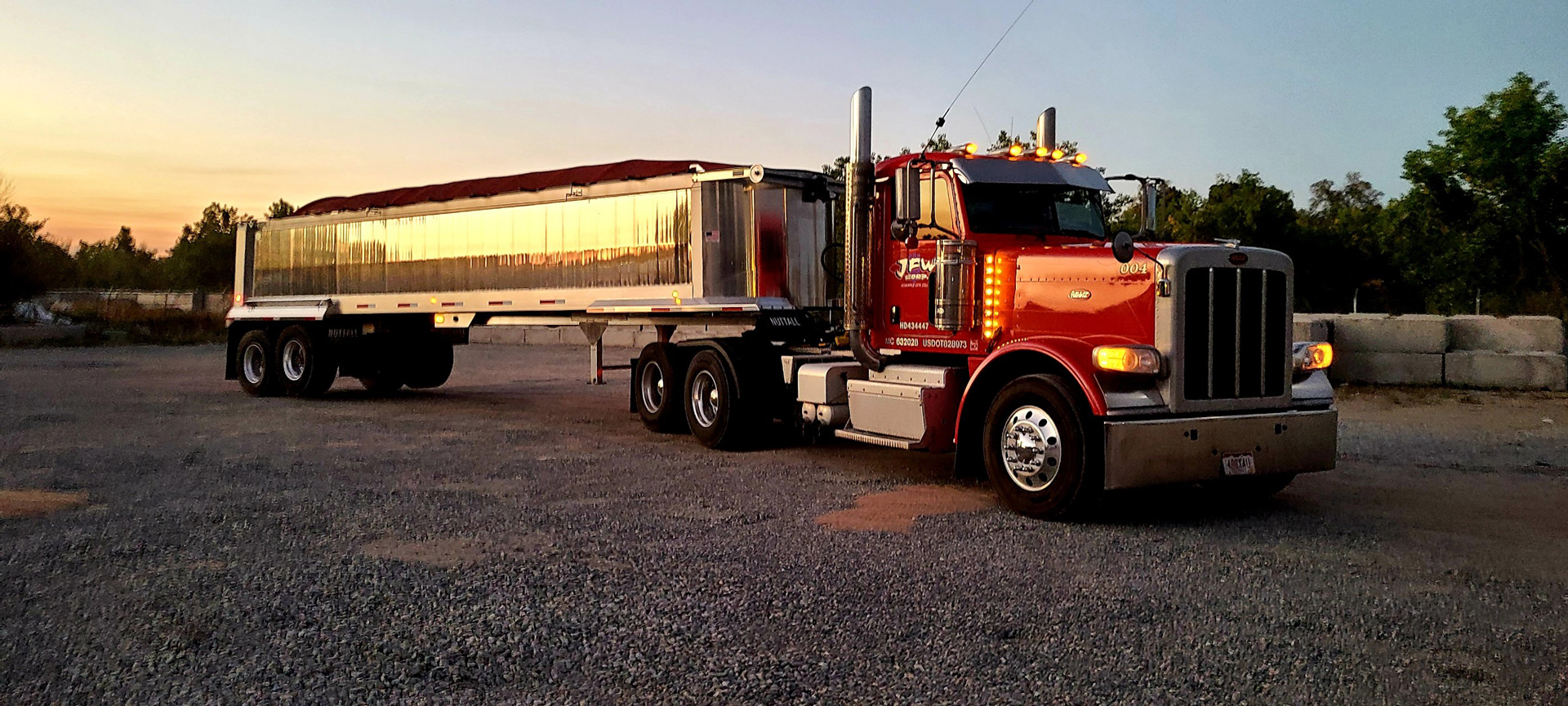EV Big Rigs are Highly-Anticipated, but They’ve Got Some Major Issues…
Electric Vehicles (EVs) have taken the consumer automobile market by storm in the past few years.
As of March 2022, 78,028 electric vehicles were sold, adding to the 2.32 million that have been on the road since 2010.
Electric vehicle manufacturers have been branching out, and they have electric big rigs in their crosshairs.
To many, heavy trucks are the next logical step in the world of EVs…
But powering a long-haul workhorse with batteries is much easier said than done. So, if you’ve been wondering if electric trucks are going to send diesel engines packing, keep reading!
We’ll explain how electric big rigs work, and why they probably won’t become the industry standard anytime soon.
How Are Electric Trucks Supposed to Work?
Of course, electric trucks are powered by large batteries—and a lot of them.
Those lithium-ion batteries feed AC power to the wheels, which moves the truck down the road. The benefit should be reduced fuel costs and lessened emissions. Sounds simple, right?
Well, not exactly.
For one thing, those batteries add a lot of extra weight. For example, Tesla’s EV trucks will be carrying an estimated 4.7 – 7.9 tons of batteries without a payload. The entire truck will weigh around 15 tons.
If you’ve been in the trucking industry for a while, you’ll know that extra weight is bad for business.
And even with tons of batteries powering an electric truck, EV manufacturers have only managed 300 – 500 miles of range before the rig will need a recharge.
Are EV Big Rigs Less Expensive to Run?
On paper, a battery-powered big rig should be cheaper to run per mile—Tesla has claimed their semi-trucks will cost $1.20 per mile.
That’s 20% cheaper than the average diesel truck, but there’s a problem with their math.
According to the MIT Technology Review, that 20% difference was calculated using an electricity cost of 7 cents per kilowatt-hour.
That’s around half of what the average American homeowner pays per kilowatt-hour. So, any spike in the cost of electricity will likely make EV trucks more costly.
Not to mention, the batteries alone are estimated to cost over three times as much as the price of a diesel-powered semi-truck. For example, MIT put the price of batteries for one rig (with a 600-mile range) at a whopping $400,000.
Plus, time is money in the trucking industry. Even with proposed, lightning-fast superchargers for these rigs, EV trucks will be sitting and recharging for hours.
EV Big Rigs Are Safer than Diesel Trucks… Right?
In theory, EV trucks are supposed to be safer than the average diesel truck.
Most EV manufacturers are adding self-driving capabilities to their rigs in an effort to take some strain off the driver.
But self-driving cars are far from perfect, and the same is true of self-driving trucks.
To be clear, this tech would probably make a driver’s job much easier.
But accidents do happen, and in our opinion, leaving tens of thousands of pounds of cargo under the supervision of a computer is bound to create some serious issues.
If a crash does happen, EV trucks have a 0.3% chance of combusting compared to a 1.5% chance in a diesel truck. But burning batteries burn hotter, faster, and more intensely than fossil fuels, and they can take days to fully extinguish.
Electric Big Rigs: The Bottom Line
Electric 18-wheelers may provide lower costs for trucking companies and an easier job for truckers on the road…
But the time when every truck on the road is battery-powered seems to be a long way off.
Without a meaningful solution for the range and weight problems EV rigs present, it’s unlikely that diesel will be going away anytime soon.
And with self-driving technology still in development, operators will have to continue making the long haul on their own.
For all you diesel-driving truckers out there, that means there will still be a lot of money to be made for years to come.
And if you’re looking to make money with a company you love, you’ve come to the right place…
Drive with JFW Trucking
We’re always looking for ways to improve our fleet, but we don’t believe self-driving EV trucks are the solution. But because we care for the environment and want to protect it for generations to come all our trucks are late model, clean idle compliant with the latest technology. What does that mean?
Well, it means the air coming out of our stacks is actually cleaner than the air in California.
When it comes to operating our trucks, our goal is to put the best of the best behind the wheel. And we offer the pay, benefits, and modern equipment to match…
- Paid Time Off
- Owner Operator Trucking Job Only local routes
- Health benefits (healthcare, dental, vision, and savings plans)
- Retirement plans
- Paid holidays (New Year’s Day, Easter, Memorial Day, Independence Day, Labor Day, Thanksgiving Day, Christmas Day)
- Quarterly bonuses for driving safely
- Modern equipment (2017 or newer) and a skilled mechanic team
Whether you’re new to the trucking industry or you’re a veteran trucker looking for something new, we’d be happy to welcome you to our team.
So, forget about electric big rigs and drive with a company that values you and your skillset—drive with JFW trucking.
If you’d like to learn more about what we do, click here to visit our homepage.
Curious how we stand out in the crowd? Click here to read about our $1,000,000 investment back into our company and our employees.
And if you’re ready to get started, we’re ready to get you on the road and making money! Click here to APPLY NOW.

